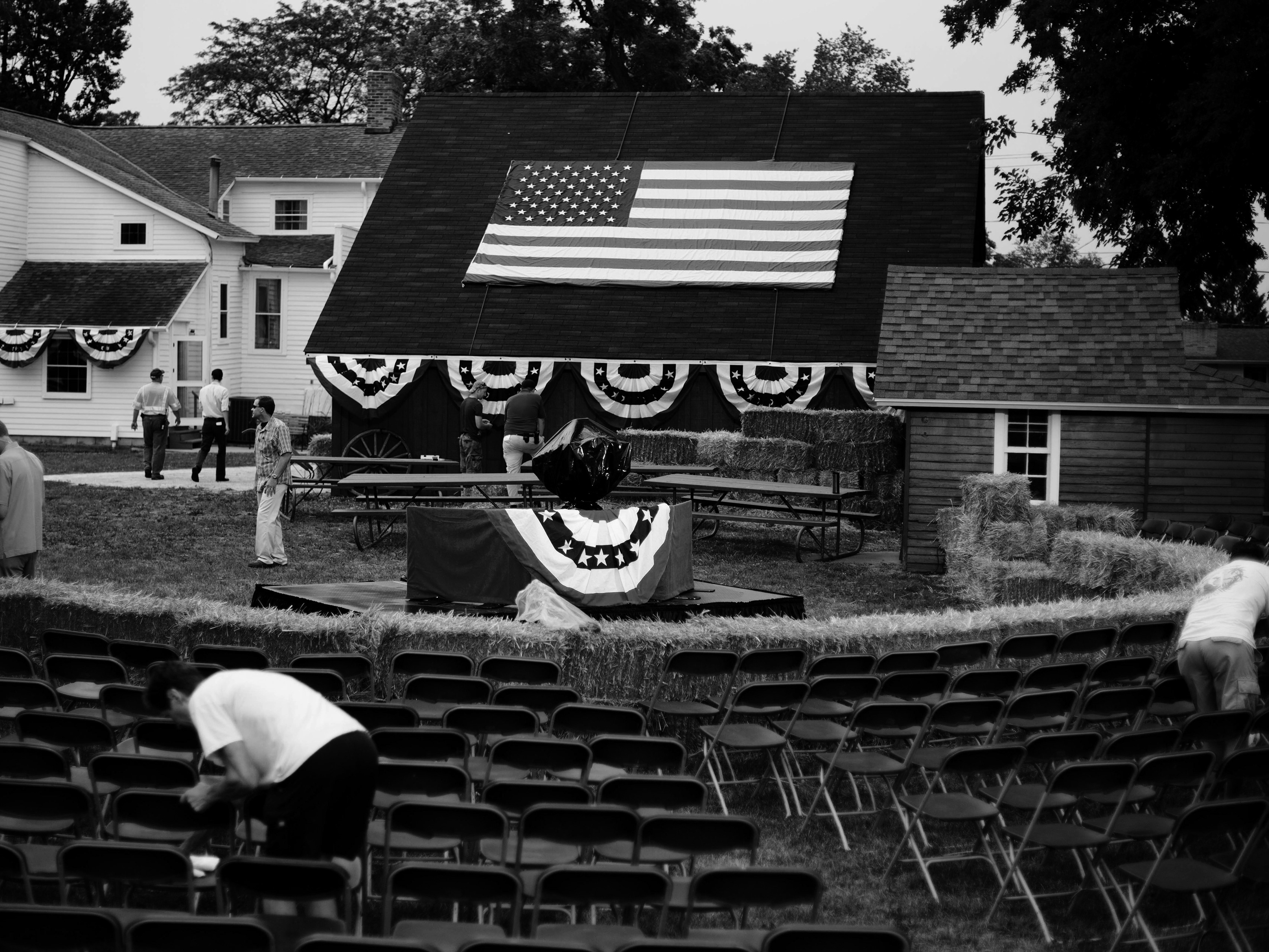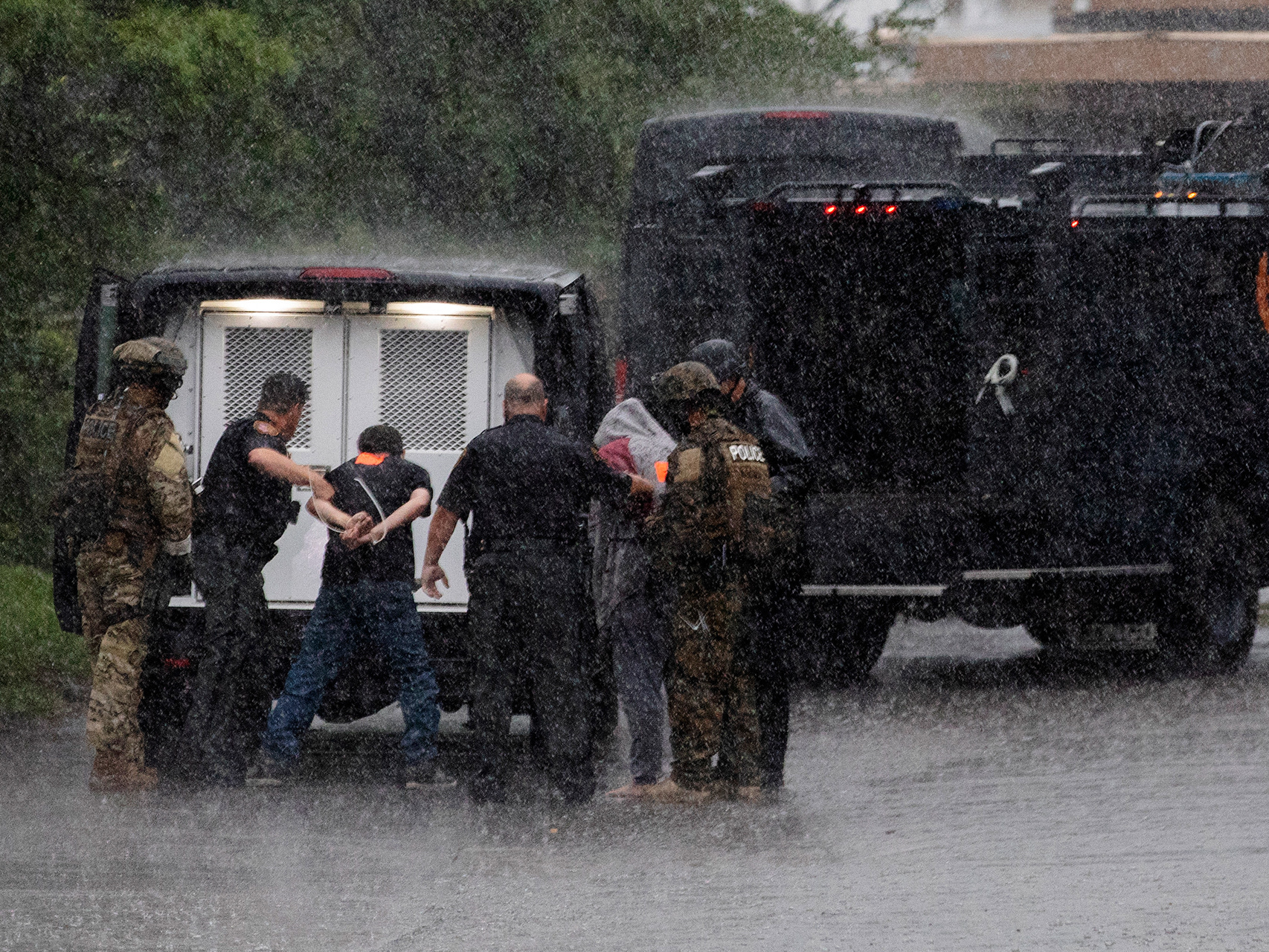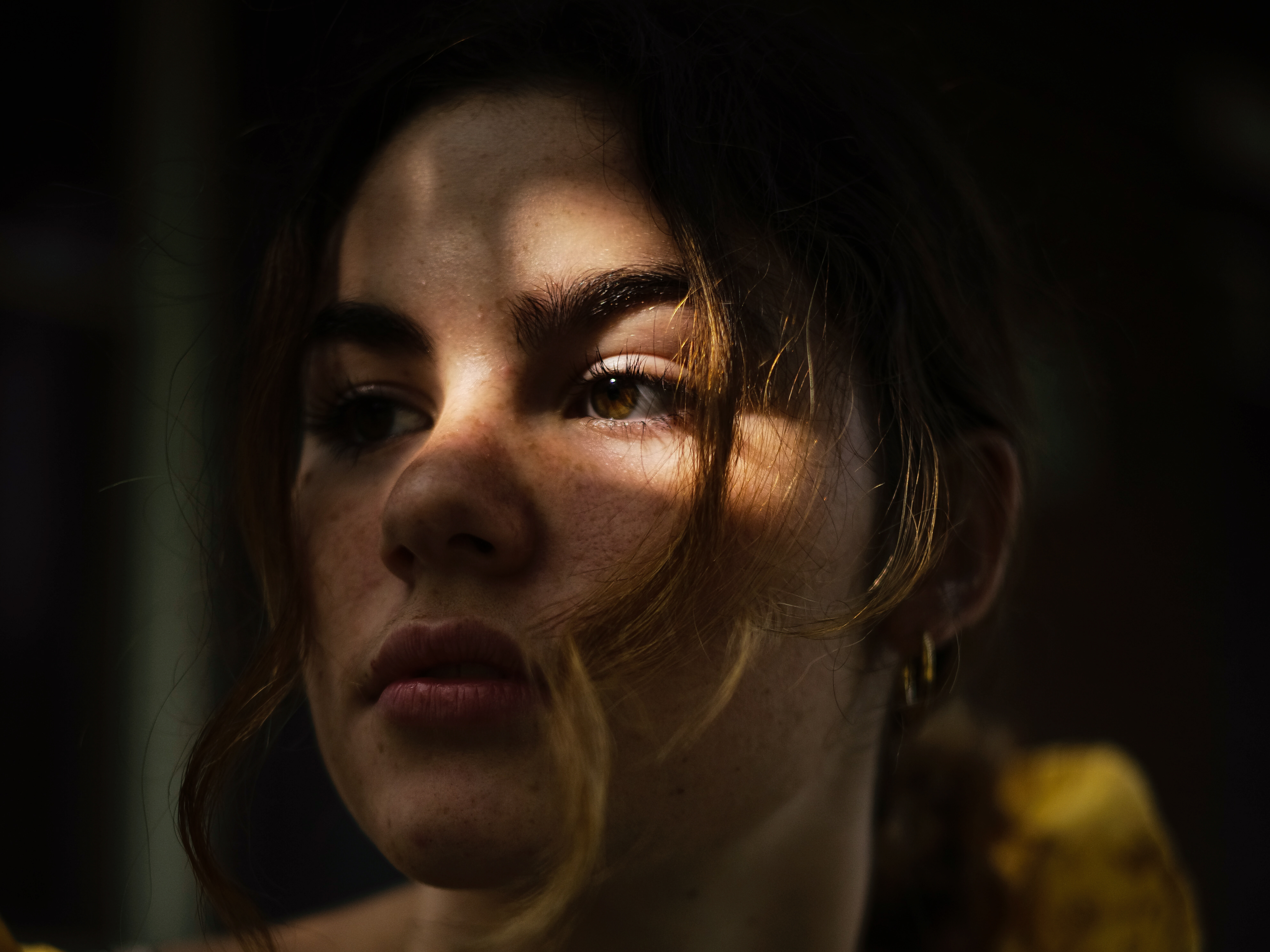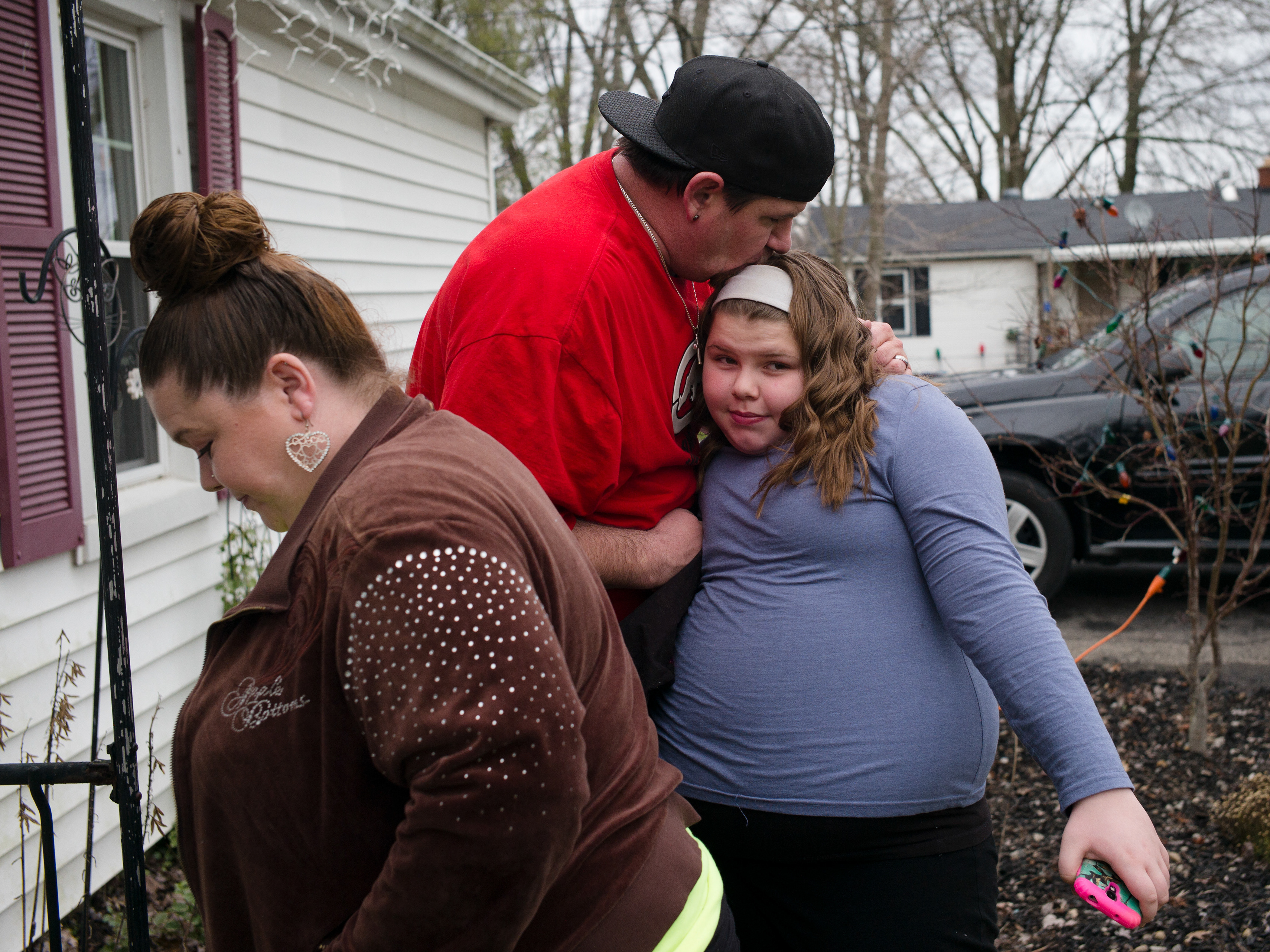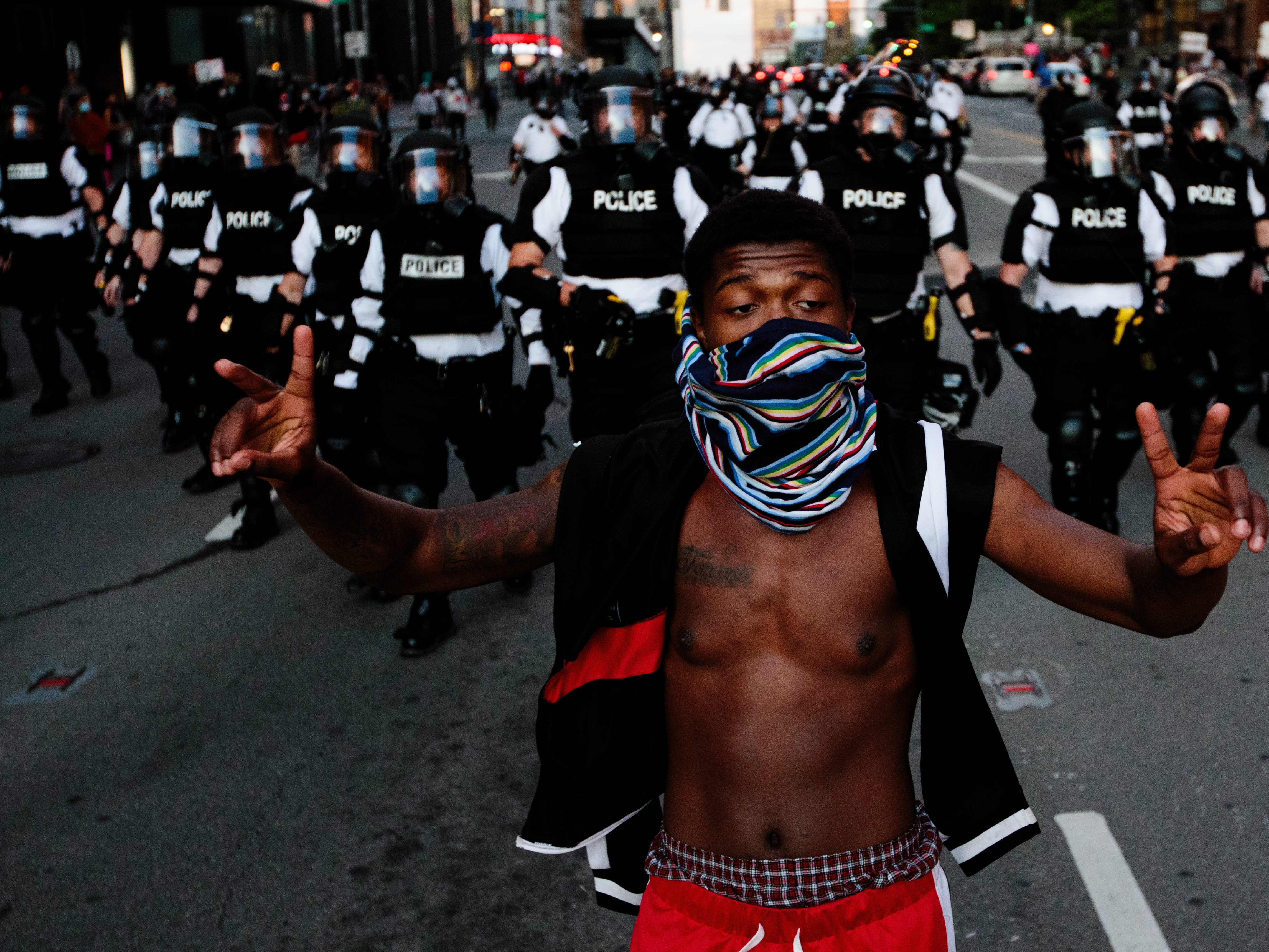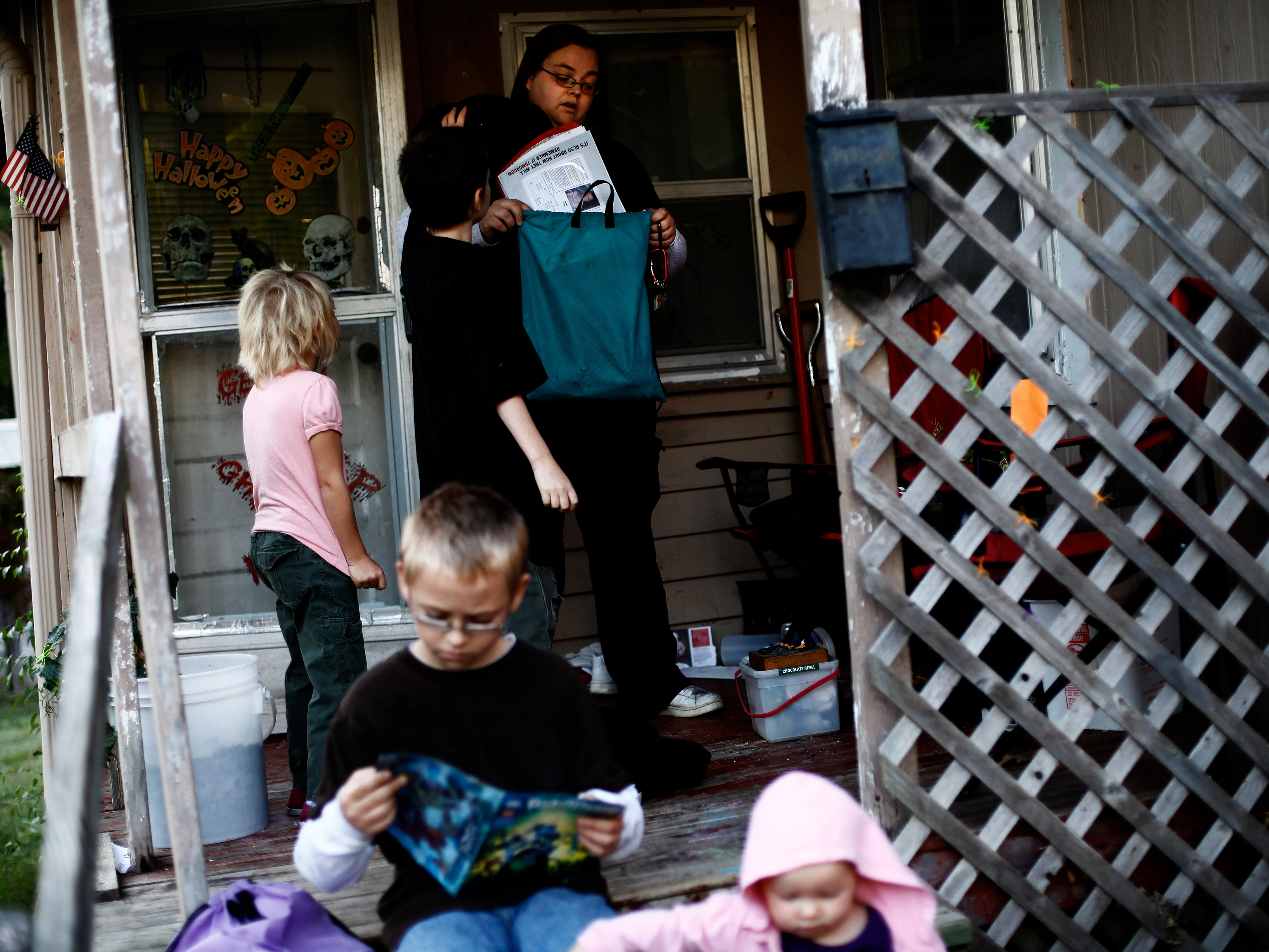Over the course of 11 days, as outrage grew over the death of George Floyd and many others whose names were shouted along with his, many felt compelled to join the movement. Protesters came to downtown Columbus, Ohio, to demand action and stop police brutality and discrimination they say has gone on unchecked for way too long. There had been protests before, but not like this.
Then the protests got more violent, and the focus turned to tear gas and broken windows. Lost in the chaos was the message so many were desperately trying to shout over all the noise: Something has to change.
Jebel Jones, 40, Jamille Jones, 37, and Zulima Jones, 6, of Gahanna, Ohio:
Zulima Jones attended her first protest at two months old.
Strapped to her mother Jamille’s chest, the family of three marched through the streets of New York City, protesting the death of Eric Garner, who died in 2014 after a police officer put him in a chokehold while arresting him.
“With Eric Garner and Michael Brown, the world hadn’t reacted,” Jebel Jones said. “There was zero justification.”
Six years later, he said, the world is starting to listen.
“I’m so proud that everyone noticed and not just us,” he said. “If we’re louder this time, if we protest longer this time, maybe there won’t be a next time.”
For Jamille Jones, this time is different.
“Now, being a mother, I’m more her for her,” Jamille said, looking at Zulima. “Hearing George Floyd call out for his mother gets to me. I’m out here so in five years, she won’t have to be back out here protesting again.”
Shakara Petty, 23, of Dublin, Ohio:
Shakara Petty put it simply: Being a Black woman in America is hard.
“It’s one thing being a woman in America,” she said. “But being a Black woman? You have to carry yourself in a certain way.”
If she’s ever mad, she’s an angry Black woman. If she’s ever outspoken, she’s ratchet. She feels like she can’t show weakness. She has to be strong.
“It’s a whole different walk,” she said.
She was taught to be strong by her mother, who learned it from the women before her, who learned it from the women before them, and so on, and so on.
“It gets tiring being strong,” Petty said. “I want an off day, too.”
Anthony Hitchens, 30, and Bryana Tarpley, 27, of Blacklick, Ohio:
As a black man, Anthony Hitchens said, he doesn’t have a choice but to be out here protesting.
The countless encounters with police, always fitting the wrong description, getting stalked in the store for no reason. It all weighs on him.
“I’m furious, angry, scared, lost, wondering, hopeless, hopeful… every emotion you could think of,” Hitchens said.
Hitchens’ fiancé, Bryana Tarpley, said everything feels surreal.
“It’s like when you’re in school and you learn about slavery and you say, ‘I wonder what it was like in the slave days,” Tarpley said. “But you’re seeing it in action. The past is now.”
They wanted to be a part of this movement for their future. They want to have children one day, Hitchens said, but Tarpley is scared of what that could bring.
“I wish they loved black people like they love our culture,” Hitchens said.
He shook his head.
“This is America. We’re supposed to be free.”
Austin Smith, 18, with his friends, Gavi Steinman, 17, and Julian Chitu, 18, all of Bexley, Ohio:
Austin Smith thought about all the times he chose silence over speaking out.
He thought back to that cruise ship vacation in 2017 when a white woman called one of his black friends a monkey. One of their white friends told the woman off, but Smith said nothing.
“I was complicit,” Smith said. “It’s two years later, and now I’m speaking out.”
Smith and his friends – Gavi Steinman and Julian Chitu – organized a protest at Bexley High School last week after going to a protest in Downtown a couple days early. More than 60 of their classmates and teachers showed up in solidarity.
“I feel uplifted,” Smith said, looking up at Steinman and Chitu. “Not everyone I know is explicit about their support. I know my friends who are.”
Nitoriya Goff, 32, Faith Smith, 4, and Isaiah Smith, 6, of Columbus, Ohio:
Nitorya Goff and her two children –– 6-year-old Isaiah and 4-year-old Faith –– are just a piece of what she calls her “huge bonded, blended and unbroken family.”
“We are a tribe,” Goff said. “My nieces and nephews are mixed. We’ve got family from all over.”
When she looks out at the crowds of protesters, she sees a reflection of her family. People of all different backgrounds, united together by a common bond. It’s for that reason, she said, she feels hopeful.
“Change is coming,” Goff said. “My kids are gonna be safer and they’re gonna have more to look forward to.”
She paused, opened her eyes and looked heavenward.
“Thank you, God,” she said.
Trevon Jamison, 22, and Keshawn Wilson, 20, of Columbus, Ohio:
Keshawn Wilson is scared.
Scared that one day he’ll get a phone call from his family saying something happened to them. Scared that when a cop pulls him over, they’ll see arrest warrants under his name instead of the victim of identity theft as a child.
Scared that when the protesters finally go home that people will forget.
“Looking at all of these cops right now makes me scared,” Wilson said. “The only thing that makes the fear go away is being inside.”
Wilson said he doesn’t think all cops are bad. There have been plenty who’ve helped him out in moments of need, who listened to him say those warrants weren’t his. But for all of the good cops out there, he said, the racist cops aren’t helping anyone.
“They’re making America look divided,” Wilson said.
Ronnie Stokes Jr., 25, and Tamisha Tarpley, 25, of New Albany, Ohio:
Tamisha Tarpley knows she carries influence, which is why she feels responsible for being at the protests.
“I want to use my voice and I want to be heard,” Tarpley said.
It’s the same fight that her parents, grandparents and great-grandparents were fighting. Now, it’s hers.
Ronnie Stokes Jr., Tarpley’s husband, feels that same responsibility but said he’s frustrated by the weight of it.
“It’s not right that I have to feel this way,” Stokes said. “We all have a voice and we should all be fighting this fight.”
Zharia Troutman, 23, of Marion, Ohio:
To Zharia Troutman, it’s just the right thing to do.
“They’re my people,” Troutman said.
She wants equality. She wants respect. She’s grateful for the support of people who aren’t Black, but she hopes they take the time to educate themselves beyond this moment.
She worries in a world where she knows she and her family members will always fit the description of the suspect.
She knows that one day when she chooses to start a family, whether her partner is white or black, her children will still be Black. They’ll still carry the same weight she has because of the color of her skin.
“We’re people, too,” Troutman said. “We’re the same, just different shades.”

